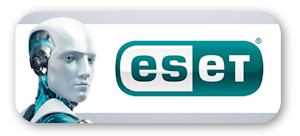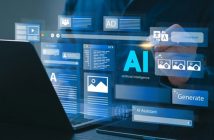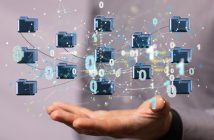
ESET’s tips on staying abreast of future cyberattacks:
 The importance of data security couldn’t be higher on the agenda. An increased emphasis on, and interest in finding, the best solutions to stem the disruption caused by future attacks is an absolute necessity.
The importance of data security couldn’t be higher on the agenda. An increased emphasis on, and interest in finding, the best solutions to stem the disruption caused by future attacks is an absolute necessity.
If you aren’t already practicing these cybersecurity “musts”, this list should be a guide to get you started:
- Invest in comprehensive endpoint security software:
For most machines, even home computers, basic antivirus software has not been sufficient for some time now. Adding extra, cooperating layers of security, as provided in modern “internet security” suites, provides more comprehensive protection. For businesses, in light of growing malware attacks, just because a machine is “only a file server”, and it has a firewall, does not mean it does not need anti-malware software: it does. Always install a reputable anti-malware program.
- Reliable backup:
Planning well in advance by backing up your systems at regular intervals is crucial. Keep at least one such backup on offline storage at all times to protect your most recent data from an attack and consider having backup storage securely placed outside of your home or office. Make sure you always back up data, and regularly check that your backup systems are working properly by ensuring you can reliably restore data from them. This will not prevent any kind of malware attack, whether it is ransomware or not, but it is necessary as an overall safety measure, as following a natural disaster, fire or theft, backups will likely be the only place from which you will be able to restore important data.
- Ensure digital devices are up to date:
Patches and system software updates can be difficult to deploy across an entire company’s network. However, investing time in ensuring your software is up-to-date will save you in the long run. Those depending on managed service providers should check what system update policies are applied to their systems and carefully consider their applicability.
Individuals should double-check that automatic updates are enabled. This advice applies equally to non-Windows devices too, despite popular misconceptions, iOS is in fact vulnerable to cyberattacks. Apple’s systems, most smart phones, tablets, and some other “smart” devices, have automatic update functionality which should either be enabled, or managed through corporate network management systems.
- Employ safe password practices:
Data breaches of online systems are becoming increasingly common, and with end-users having little influence on the management of such systems, user account details (and worse) can be exposed. All you can do to improve login account security is to practice safe password habits. Always create strong passwords, preferably by using a long passphrase. Never use the same password on two or more sites and wherever possible, enable two-factor or multi-factor authentication options. If it is onerous to remember all those different passwords, using a password manager is a great option.





